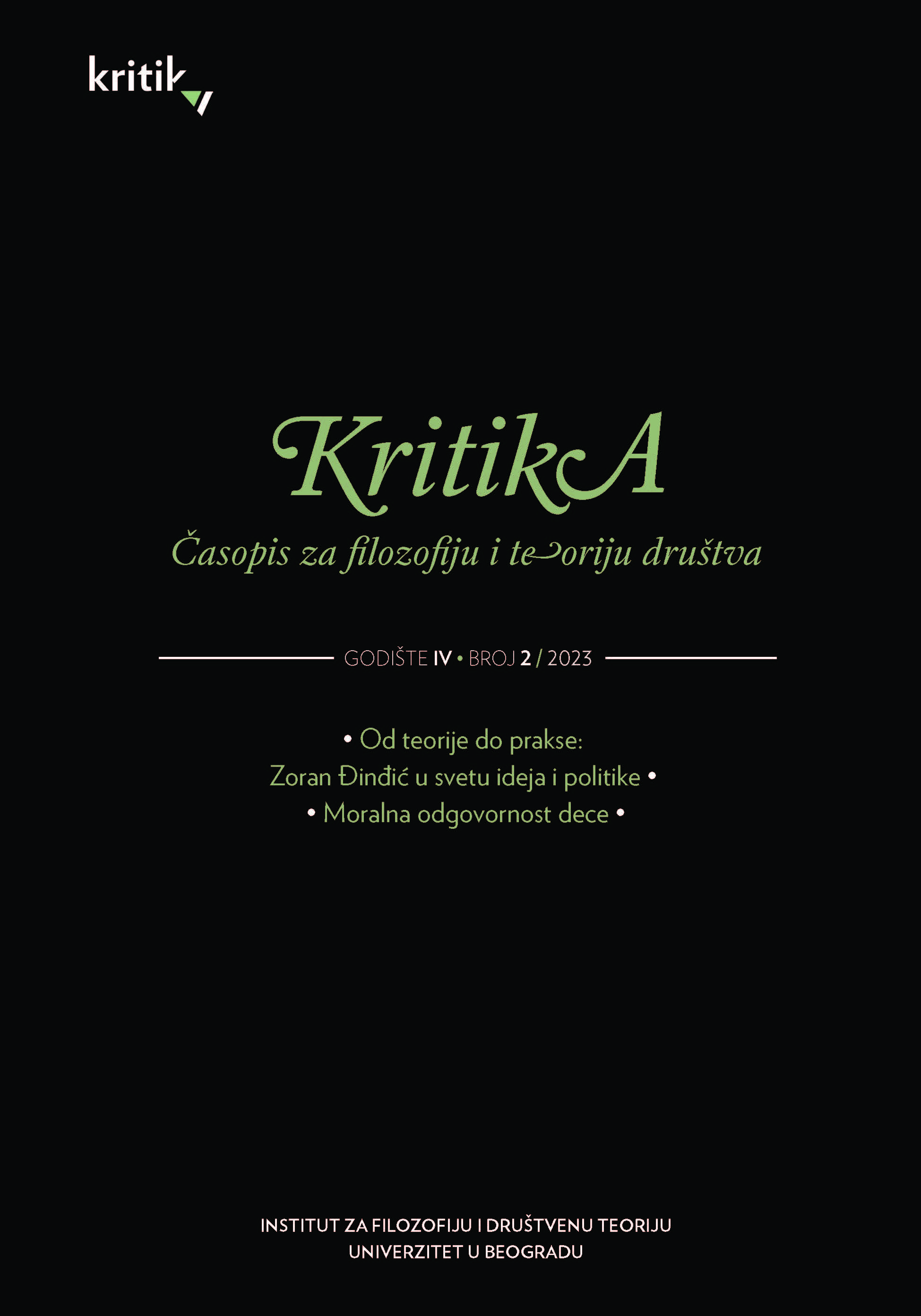MINERVINA SOVA U NOĆI SVIJETA. HEGEL, SCHELLING I MARX U ŽIŽEKOVOJ „VESELOJ NAUCI” DANAŠNJICE
MINERVA’S OWL IN THE NIGHT OF THE WORLD. HEGEL, SCHELLING, AND MARX IN ŽIŽEK’S ‘GAY SCIENCE’ OF THE PRESENT
Author(s): Borislav MikulićSubject(s): Political Philosophy, Social Philosophy, German Idealism, Marxism
Published by: Institut za filozofiju i društvenu teoriju
Keywords: Hegel; Marx; Žižek; Owl of Minerva; the Real; radical criticism; dialectics vs parataxis; sexuality; publishing industry
Summary/Abstract: Following Slavoj Žižek’s reassurement that his critical analysis of the present global world is „closer to Hegel than to Marx” and, consequently, to dialectial materialism than to the historical one, I first present such a shift as a kind of re-reversal of Marx’s turning of Hegel upside down in a series of materialistic Hegel-reversals from Althusser through Feuerbach back to Schelling. Against this background, I scrutinize Žižek’s recent extensive references to Hegel’s metaphor of the ‘Owl of Minerva’, in his three 2020 books dedicated to the 250th anniversary of Hegel’s birth, with regard to, on one side, his three „formulas of reconciliation” (the religious, the political and the sexual) of the Absolute and actuality, and to related references in Žižek’s earlier „Hegelian” books, on the other. As I argue, Žižek’s idea of a „formula of reconciliation” substitues Hegel’s negative notion of the Present (Gegenwärtiges) for the speculative notion of the Real (Wirkliches), which is possible only if the moment of the True (Wahres) is omitted from Hegel’s idea of Reality and if Hegel’s metaphor of ‘the dark night of Self’ is identified with the pre-symbolic and pre-conscious true Self in the later Schelling. As a consequence, Žižek’s new ‘gay science’ of parataxis — juxtaposing his own writing style with the allegedly paratactic structure of Hegel’s dialectical thinking — unjustifiably bypasses Freud’s lessons on the editorial work of deams, on the one side, and falsifies the character of Hegel’s dialectics, on the other. Eventually, it reaches only so far as to justify Žižek’s excessive self-references and auto-narration and to disguise his ongoing tacit abandonment of his commitment to radical social criticism for the sake of enjoyment in the status of the best selling commodity in the capitalist publishing industry that needs „ever more Žižek” in order to produce yet more need for „more Žižek” as commodity.
Journal: Kritika: časopis za filozofiju i teoriju društva
- Issue Year: 4/2023
- Issue No: 2
- Page Range: 419-453
- Page Count: 35
- Language: Croatian

